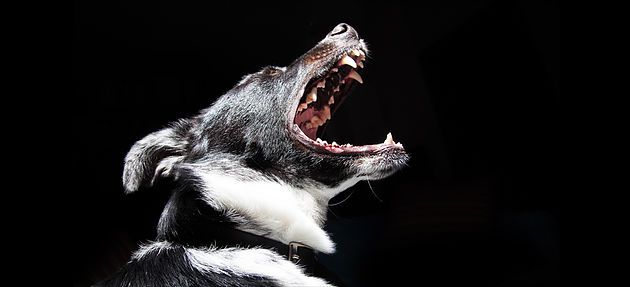February is Pet Dental Awareness Month, not that dental care is less important any other time of the year. For cats and dogs alike, ongoing home care is recommended in order to minimize the number of dental procedures that are required at the vet’s. Most importantly, regular dental care at home reduces the number of anesthetic procedures that your pet requires, and keeps them in better health by reducing gingivitis, oral pain and the likelihood of developing tooth abscesses and other oral infections. Another point of interest is that it may also end up saving you lots of $$ in the long run.
If your pet currently has good dental health, here are some home care recommendations to keep it that way. Otherwise, discuss and consider a dental with your veterinarian. Starting with clean teeth makes home care much more effective and useful. Using one, or several of these measures are great ways to help maintain good oral health in your pets.
We’ll have a follow-up blog post discussing what a dental procedure for your pet entails, as well as to address ‘anesthetic free dental cleanings’. In the meantime, here’s a link with a few things to consider before pursuing an anesthetic free dental cleaning.
http://avdc.org/AFD/what-is-an-anesthesia-free-dental-cleaning/
Pet Dental Home Care Suggestions
1) Brushing. Brushing once daily is a great way to slow down the buildup of tartar and dental disease in your pets. It is contingent on 2 main factors though. First, your pet has to let you. Not all of our furry friends are as cooperative as we’d like them to be. Second, you have to want to do it as well. It is important to remember to use pet friendly edible toothpaste as well. Many of these are chicken, beef, or tuna flavored to help the animal tolerate the brushing better. Most of our “human” toothpastes are not meant to be ingested, and since we can’t tell our pets to spit after brushing, edible alternatives that have been specifically formulated for pets are available. If you are just starting out brushing your pets’ teeth, start slow, maybe just with a finger brush and only brushing the front few teeth. As your pet becomes more comfortable with it, slowly work your way to the back molars and add in the toothbrush. Speak to your veterinary team for tips and advice!
2) Veterinary Prescription Dental Diets. Dental diets are dry kibbles that are specially formulated to act like an oral toothbrush every time an animal eats. Most regular kibbles crumble when they are chewed on, and are very small in size requiring very little chewing action. Dental diets are formulated to not fall apart until they hit the gum line effectively scraping the tooth during chewing, as well as having significantly larger kibble sizes to facilitate increased chewing and effectiveness.
3) Water Additives. There are several products available, some of the more common ones being ‘Healthy Mouth’ and ‘Vetradent’. These products are concentrates that are diluted into an animals drinking water. They help to reduce bacterial bio-film formation, as well as keeping tartar soft and slowing down the process of it hardening into that hard calculus that is difficult to remove from the teeth. With regular use of dental water additives, brushing, dental diets, and chewing on toys and bones becomes more effective at removing the soft tartar.
4) Oral Sprays. These frequently act in a similar fashion to the water additives, and are just a different route of application. Water additives can sometimes very slightly change the taste of the water, and while the vast majority are not affected by it, for some animals this is an issue and causes them to drink less or avoid the water all together. Water additives are great since every time an animal drinks, they coat their mouth with the additive. Oral sprays are applied twice daily, usually after meals, and also help to reduce bacterial bio-film and calculus hardening.
5) Dental treats. Dental treats help a bit, and as I like to call them, are like the cherry on top. They do not replace brushing or dental diets, but do help a little. If you’re going to give your pet a treat, might as well get some benefit out of it too right?
6) Chew toys/bones. Chewing is a great way for animals to reduce tartar buildup. However there is no perfect chew toy. For example, bones are great for dogs to chew on – it keeps them busy for long periods of time and helps reduce tartar buildup. However bones are very hard and can cause serious tooth fractures in some cases. Lots of dogs love chasing and playing fetch with tennis balls, but do be careful as the wiry surface of tennis balls almost acts like sand paper and causes tooth wear very quickly. Also, anything can be swallowed and cause an intestinal obstruction. Nothing is indestructible, so you will have to find something appropriate for your pet to chew on.

